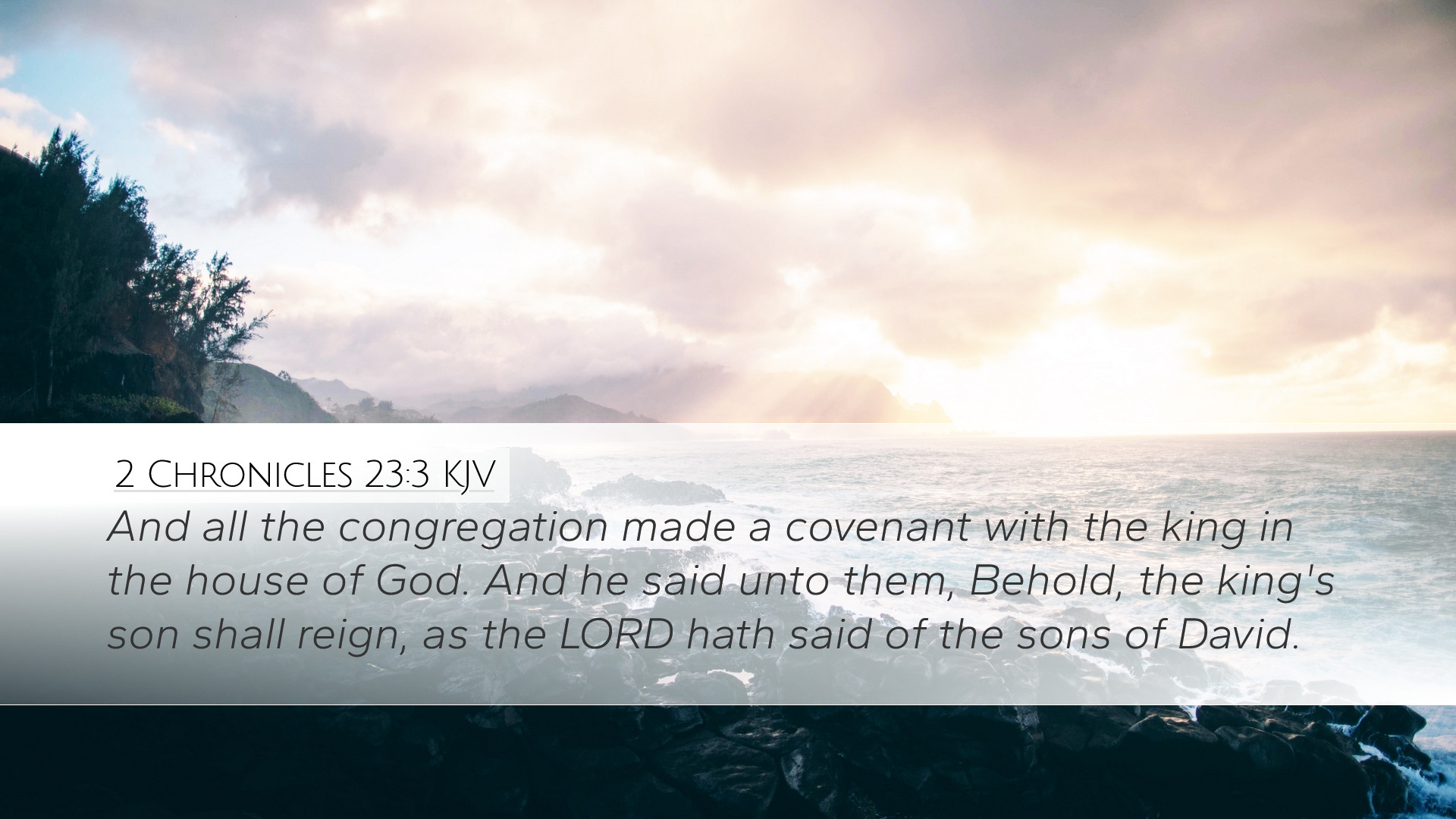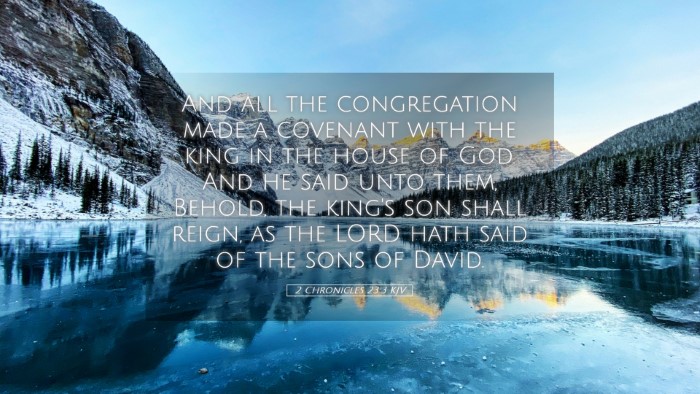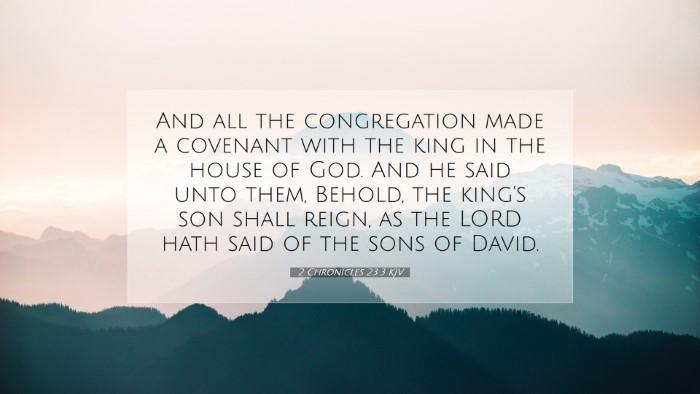Summary of 2 Chronicles 23:3
2 Chronicles 23:3 states, "And all the congregation made a covenant with the king in the house of God. And he said unto them, Behold, the king's son shall reign, as the LORD hath said of the sons of David." This verse encapsulates a pivotal moment in the narrative of Judah's history, marking the coronation of Joash and the restoration of rightful leadership following a period of tyranny under Athaliah.
Contextual Background
The backdrop of this verse involves a critical transition in Judah's monarchy. Athaliah, the daughter of Jezebel, had seized the throne and eliminated the royal heirs to secure her power. In the midst of this turmoil, the priest Jehoiada orchestrated a rebellion to restore the Davidic line. By bringing Joash, the last remaining son of Ahaziah, to the forefront, Jehoiada aimed to fulfill God's covenant promise regarding the Davidic kingship.
The Covenant with the King
This moment encapsulates a formal agreement made between the leaders and the people—Denoting the importance of community consensus in a covenantal society. The covenant signifies their commitment to support Joash as the rightful king, acknowledging the divine endorsement of David’s lineage.
- Covenantal Theology: The act of forming a covenant reflects the theological theme that permeates the biblical narrative—the importance of divine promises and human responses.
- Leadership and Responsibility: The covenant implies that the leadership of Joash would not only be a matter of birthright but also of communal responsibility and divine ordination.
The Role of Jehoiada
Jehoiada's role as a high priest is central to this account. His leadership brought stability and guidance amidst chaos.
- Spiritual Authority: Jehoiada's authority derives not only from his priestly lineage but also from his commitment to God and adherence to divine law, suggesting that spiritual integrity is vital for effective governance.
- Tactician and Protector: His strategic planning demonstrates political acumen, as he effectively rallies support for Joash while protecting the king from Athaliah's wrath.
The Significance of Joash's Kingship
The choice of Joash emphasizes the theme of divine election and preservation. Although a child, Joash is positioned to fulfill God’s promises to David, indicating that the fulfillment of divine plans does not always conform to human expectations regarding age or experience.
- Davidic Lineage: Joash represents the continuation of God's covenant with David, ensuring that the promise of an everlasting kingdom remains intact.
- Symbol of Hope: In a time of darkness, Joash symbolizes hope for the people of Judah, reflecting the idea that God raises leaders in times of need.
Implications for Contemporary Readers
For modern readers, this passage offers profound insights into leadership, covenant relationships, and divine providence.
- Leadership Principles: The restoration of Joash underscores the significance of godly leadership and the communal support needed to uphold righteousness in a community.
- Covenant Relationships: The formation of a covenant signals the need for mutual commitments—between leaders and the people—to pursue collective well-being and faithfulness to God.
- Trust in Divine Plans: Just as Joash was chosen by God, believers today are reminded that God’s purposes will prevail, regardless of present circumstances.
Conclusion
2 Chronicles 23:3 not only encapsulates a historical moment in Judah’s monarchy but also serves as a timeless reminder of God’s faithfulness amidst human failure. The restoration of Joash speaks to God’s sovereignty and the redemptive arc that runs throughout Scripture, encouraging present-day believers to trust in God's continued guidance and provision.


